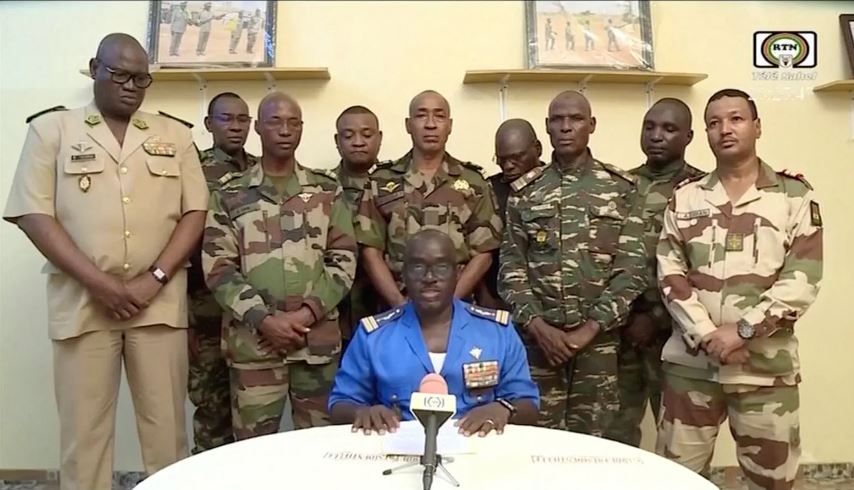Eight Judges Assigned For Trial Of 2,000 Boko Haram Members
The Federal Government is making preparations to begin the trial of approximately 2,000 Boko Haram members.
These individuals have been detained for involvement in terror activities, and the trial is to be handled by a team of eight judges.
The trials are set to occur in Kainji, Niger State, within a secured environment provided by the special security group, Operation Safe Corridor. Many of the suspects are already held in detention at this facility.
While the trial’s plans were established under the administration of former President Muhammadu Buhari, logistical issues have caused delays.
Notably, the Ministry of Justice had requested that the Nigerian Air Force transport the judges and lawyers involved in the proceedings. However, this request was not met with a positive response. With this hurdle, the commencement of the trials was stalled.
A top official of the ministry spoke with Punch, “We have taken steps to try the suspects; you know some people that are due to be transferred to the Operation Safe Corridor. We have written to the air force to assist us with logistics to convey some of the suspects, who are to undergo rehabilitation, from Kainji to the Operation Safe Corridor in Gombe State to free up the detention facility and then we’ve also written to them to make arrangements for the transportation of judges and lawyers in kind.
“We are awaiting the CJ to give us a date (for the commencement of a trial). We have written to him (CJ) to inform him to give us a date, something at the convenience of the court; so, we are waiting for a correspondence from him to tell us when it is convenient.”
When asked how many suspects would be transferred to the Operation Safe Corridor, the source said about 1,000.
The source added that about 2,000 persons would face trial for their roles in Boko Haram’s deadly onslaught against fellow citizens and security agents in many parts of the North, especially in the North-East with the group taking over some territories, hoisting its flag and forcefully collecting tributes from farmers before they can go to their farms.
When asked if there was a timeline for the prosecution of the suspects, the source said, “No, we do not have a timeline. You know the judges that will be trying these cases are also going to be handling their regular cases; so, what we do normally is that we stagger the trial. We go there for two weeks; everyone will come back to their offices, do a few things and then go back.
“The trial will be fast-tracked, but I wouldn’t say we have any timeline. Once we start, we will be able to say that we will be able to dispose of all the cases within a certain period of time. At this point, I cannot say.”
The source added that more suspects might face trial because “the insurgency is ongoing so as they arrest (more suspects) at the frontline, we will profile them and take them (for trial) unless the insurgency stops.”
On the judges, the source stated, “I think the CJ has designated eight judges to handle the trial, but I don’t know if all the eight will sit at the same time.
“There can’t be dedicated judges solely for the trial of the Boko Haram suspects unless we employ new judges because the ones on the ground already have ongoing cases they are trying. If they are criminal cases, once you take it from them and say go and face terrorism cases, it means all those cases will start afresh; so you are going to be taken from here and given to that place and deprived of the other place.
“It means the regular cases will suffer but I think it is okay because the arrangement is okay; it is even the prosecutors that will feel it more; if we move the 20 lawyers to Kainji essentially, the department will suffer and will be empty. If you go there and spend two or three weeks and come back, we will be able to attend to work here and do whatever we are doing and go back, after all, the regular courts take adjournments.”
More than 205 persons have been convicted on charges related to their involvement with the militant Islamist group, which began an insurgency in 2009 aimed at creating an Islamic state in the Northeast.
The jail terms ranged from three to 60 years, while over 1,500 persons allegedly affiliated with Boko Haram have been released for rehabilitation over the years.
More than 35,000 persons have been killed and two million forced to flee their homes since the insurgency began.
The Solicitor-General of the Federation and Permanent Secretary of the Federal Ministry of Justice, Mrs Beatrice Jedy-Agba, had told journalists in January that the Federal Government would commence the second phase of the prosecution of Boko Haram suspects being held in Kainji, Niger State.
She stated, “The Federal Government is taking steps to reconfigure the military holding facilities to make it adaptable and conducive for the recommencement of trial. We will start the prosecution by the end of the first quarter of 2023. We are in the process of renovating and, in fact, reconstructing facilities such as the courtrooms and residential areas.
“It is important to ensure that there are enhanced measures put in place. We are utilising military facilities and therefore, they were not built like proper courts.
“The resort to the use of military facilities is to ensure that trials are conducted in a safe and secure environment. There are risks associated with moving such a large number of accused persons at the same time for trial, so this is one critical issue that is of utmost concern.”




